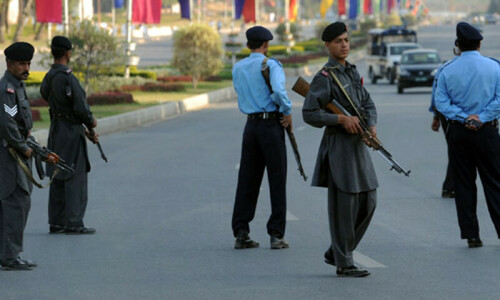KARACHI: As Pakistan declined three points in conditions for political rights and civil liberties in a global ranking, Minister for Law, Justice and Human Rights Azam Nazeer Tarar defended the country’s unwavering commitment to the promotion and protection of human rights.
According to Freedom House, a Washington-based think tank that tracks democracy and threats to freedom around the world, Pakistan was ranked “partly free” while global freedom also declined for the 19th consecutive year in 2024, Dawn.com reported.
People experienced deterioration in their political rights and civil liberties in 60 countries, and secured improvements in only 34 countries, the Freedom House report pointed out.
“In settings where conditions worsened, key factors driving the degradation in rights and liberties included violence and the repression of political opponents during elections, ongoing armed conflicts, and the spread of authoritarian practices,” it said.
Freedom House report classifies Pakistan as ‘partly free’; says authoritarians tightening their grip across the globe
Pakistan was ranked “partly free” and declined three points from the year prior. The points reflected conditions for political and civil liberties in a country.
Pakistan was also ranked among the countries with the largest 10-year declines in freedom and declined by 10 points. However, the country with the greatest 10-year decline was Nicaragua (40 points), Tunisia (35 points) and El Salvador (28 points).

The organisation noted that 2024 was marred by violence and repression around elections, ongoing armed conflicts, and the spread of authoritarian practices, all of which contributed to the decline of global freedom.
Bhutan gained the distinction of being the only South Asian country classified as free.
But others in the region made strong gains in the index without changing categories — Bangladesh, where iron-fisted leader Sheikh Hasina fled in the face of a revolt, and Sri Lanka, where Anura Kumara Dissanayake was elected president on an anti-corruption platform after breaking the stranglehold of the two long-dominant parties.
Yana Gorokhovskaia, the co-author of the report, said it was the 19th consecutive year that freedom fell on a global level, but that 2024 was especially volatile due to the high number of elections.
“The big picture is that this was another year of the same trajectory of a global decline in freedom but because of all the elections, it was more dynamic than previous years,” she said.
A rare bright spot in the Middle East was Jordan, which was upgraded from “not free” to “partly free”, while Kuwait, Niger, Tanzania and Thailand were downgraded from “partly free” to “not free”.
The only country given a perfect 100 score on freedom was Finland, with New Zealand, Norway, and Sweden all right behind at 99.
Pakistan vows to protect rights
While addressing a high-level segment of the 58th Session of the UN Human Rights Council on Wednesday, Federal Minister for Law, Justice & Human Rights Senator Azam Nazeer Tarar highlighted Pakistan’s robust legislative and policy measures, according to the Associated Press of Pakistan.
The minister underscored that over 70 human rights-related laws have been enacted in the past decade, with the recent “26th Amendment recognising a clean, healthy, and sustainable environment as a fundamental right”, a milestone in Pakistan’s human rights framework.
Expressing grave concern over the global rise in religious intolerance, particularly Islamophobia, the minister reaffirmed Pakistan’s commitment to combating all forms of discrimination, hostility, and violence based on religion or belief.
The minister also condemned Israel’s ongoing atrocities in occupied Palestine, particularly in Gaza, and urged the international community to take decisive action to uphold Palestinian rights. He reiterated that forced displacement and demographic re-engineering violate fundamental principles of international law.
He also denounced India’s illegal occupation of Jammu and Kashmir and its continued denial of the Kashmiri people’s right to self-determination.
He called on the Office of the UN High Commissioner for Human Rights to update its Kashmir reports, while urging the establishment of a Commission of Inquiry to investigate systematic human rights violations in held Kashmir.
Published in Dawn, February 27th, 2025













































